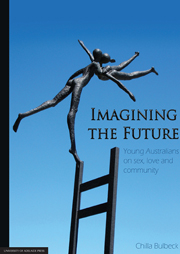Book contents
- Frontmatter
- Contents
- Acknowledgements
- Introduction
- 1 Essaying difference: Comparing essays across the sub-samples
- 2 Learning from their parents: Inter-generational change and continuity
- 3 Emotional literacy and domestic relations
- 4 Global visions and cramped horizons: Stories of class
- 5 ‘Intimate’ citizenship?
- Conclusion: Equality in the rhetoric, difference in reality
- Appendix 1 The questionnaires
- Appendix 2 The sample
- Appendix 3 Survey statistics
- References
- Index
3 - Emotional literacy and domestic relations
Published online by Cambridge University Press: 05 June 2013
- Frontmatter
- Contents
- Acknowledgements
- Introduction
- 1 Essaying difference: Comparing essays across the sub-samples
- 2 Learning from their parents: Inter-generational change and continuity
- 3 Emotional literacy and domestic relations
- 4 Global visions and cramped horizons: Stories of class
- 5 ‘Intimate’ citizenship?
- Conclusion: Equality in the rhetoric, difference in reality
- Appendix 1 The questionnaires
- Appendix 2 The sample
- Appendix 3 Survey statistics
- References
- Index
Summary
Introduction
the worlds of men and women appear to be spiralling away from each other.
(Arnot 2002: 262)The young women's and men's life stories discussed in Chapter One reveal that, in many relationships, a good deal of emotion work will be needed to connect the female stories of romance to the male stories of sex, before, after and during marriage. These essays also hinted at the unequal distribution of emotional capacities needed to negotiate such complex relationships. Chapter Two explored intergenerational changes, suggesting mothers have bequeathed their daughters a progressive and empowering narrative of changed gender relations but fathers have not prepared their sons in the same way. My claim for a disjunction between expectations in intimate relationships and the emotional literacy brought to the project by each partner is the topic of this chapter. Biographers are more or less self-aware, and more or less reflexive, in assessing the intersection of their ambitions with society's resources and constraints (Adams 2006: 514-6; Adkins 2003: 25).
As the comparison between Anne Summers' essayists and mine revealed, if anything young women today are more committed to marriage and motherhood than their mothers were (see Chart 1.1, Chapter One). The difference is not in the desire to have children but in the desire to combine this with paid work, a challenge for which their parents' experiences provide little modelling (Andres and Wyn 2010: 230).
- Type
- Chapter
- Information
- Imagining the FutureYoung Australians on sex, love and community, pp. 91 - 130Publisher: The University of Adelaide PressPrint publication year: 2012



